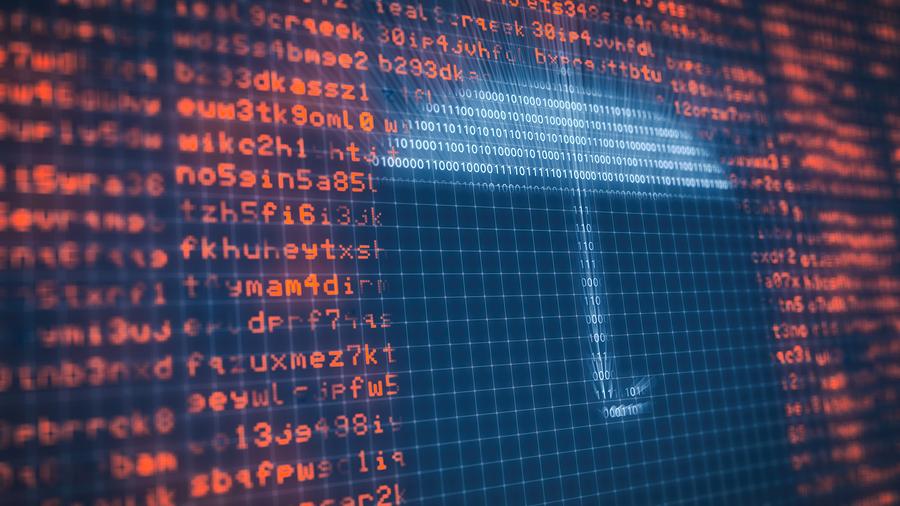Crucial Cyber Security Practices for Effective Data Destruction Techniques
Crucial Cyber Security Practices for Effective Data Destruction Techniques
Blog Article
The Necessary Nature of Information Destruction in Upholding Computer Security Providers and Protecting Versus Unauthorized Accessibility
In an age where data breaches and identity burglary are significantly widespread, the significance of efficient data damage can not be overemphasized. Organizations must recognize that the failure to properly deal with sensitive information poses not only legal and economic threats but also a possible disintegration of client trust. Various approaches, from information wiping to physical destruction, work as essential safeguards against unauthorized gain access to. Comprehending the ramifications of information damage practices and compliance with policies elevates necessary questions about the competence of present approaches and their lasting practicality in the face of evolving dangers.
Relevance of Data Devastation
In a progressively electronic globe, the importance of information devastation can not be overstated. As organizations generate substantial quantities of sensitive information, the prospective effects of falling short to properly dispose and handle of that information come to be significantly severe. Information breaches, identity theft, and business reconnaissance posture substantial hazards, underscoring the necessity of efficient information destruction practices.

Furthermore, as modern technology develops, so as well do the techniques whereby malicious actors look for to make use of sensitive information. Organizations must remain positive and vigilant in their information devastation techniques to secure versus these evolving risks. By focusing on information destruction, business not just protect their possessions however additionally foster depend on amongst clients and stakeholders, showing a dedication to liable information management and safety techniques.
Approaches of Effective Information Devastation
To ensure the complete and permanent devastation of delicate information, companies can employ a variety of efficient methods tailored to their details needs. One of the most typical approaches is data cleaning, which involves making use of specialized software program to overwrite existing data several times, making healing basically difficult. This is particularly helpful for tough drives and solid-state drives, where traditional deletion methods are insufficient.
Another reliable strategy is degaussing, which uses strong electromagnetic fields to disrupt the magnetic domain names on storage space media, providing the information irretrievable. This approach is specifically matched for magnetic storage space gadgets, such as disk drive and hard drives.
Physical devastation is additionally a sensible option, including the shredding, crushing, or incineration of storage devices. This technique warranties that data can not be recuperated, making it ideal for companies managing highly delicate info.

Compliance With Data Security Rules
Organizations must not only focus on efficient information devastation approaches yet also guarantee conformity with information defense laws that govern how sensitive info is dealt with and disposed of. Complying with these policies is necessary for guarding individual information and keeping consumer trust fund. Rules such as the General Information Defense Law (GDPR) in the European Union and the Medical Insurance Transportability and Liability Act (HIPAA) in the USA impose strict guidelines on information administration, which consist of demands for the protected disposal of sensitive information.
To achieve conformity, companies have to apply comprehensive information devastation plans that line up with these legal frameworks. This consists of recognizing information that calls for damage, establishing protocols for safe and secure methodsâEUR" such as shredding physical media or using software that satisfies sector requirements for data wipingâEUR" and keeping comprehensive records of damage activities. Routine audits ought to be performed to make certain adherence to these plans and to identify any kind of prospective locations for enhancement.
Failure to follow data defense guidelines can result in substantial legal implications, including hefty penalties and damage to a company's track record. For that reason, incorporating compliance right into information destruction techniques is not just a legal commitment yet likewise a crucial part of a robust details protection method.
Repercussions of Poor Data Handling
Poor information handling can result in severe effects that extend beyond instant functional problems. Organizations may encounter substantial monetary losses as a result of information violations, which typically cause costly removal efforts, legal costs, and governing penalties. These economic my latest blog post implications can stress sources and prevent growth, eventually influencing a company's profits.
Furthermore, bad information handling can badly harm a company's credibility. Stakeholders, clients, and partners might shed depend on in an entity that fails to shield delicate information, leading to reduced client loyalty and prospective loss of company chances. This erosion of depend on can take years to rebuild, if it can be restored at all.
In addition, companies might deal with legal implications arising from non-compliance with information defense guidelines. Such infractions may cause examinations and penalties, intensifying the financial burden and more tainting the more helpful hints organization's photo.
In the realm of cybersecurity, poor information management techniques can produce vulnerabilities that make systems extra prone to unauthorized accessibility and cyberattacks. Eventually, these consequences underscore the important value of executing durable information managing procedures to guard sensitive details and maintain business integrity.
Finest Practices for Secure Data Disposal


Firstly, data should be classified according to its sensitivity. Delicate details needs much more extensive disposal approaches, such as shredding physical records and making use of innovative software program for electronic data cleaning. Using qualified information devastation solutions makes certain conformity with sector laws and criteria.
Second of all, companies need to apply an information disposal plan that mandates routine audits. This policy ought to describe the procedures for information retention and devastation, making certain that outdated information is gotten rid of quickly and safely. Training staff members on these methods is important to cultivating a society of safety understanding.
Lastly, maintaining thorough documents of disposed data enhances liability and gives a clear audit path. This documentation should consist of the kind of data damaged, the method read used, and the day of disposal.
Final Thought
Taking on robust techniques such as information wiping, degaussing, and physical damage, together with conformity with regulations like GDPR and HIPAA, is necessary for safeguarding sensitive details. Ignoring correct data disposal practices can lead to serious effects, consisting of data breaches and legal consequences.
In a period where information violations and identity theft are progressively common, the value of reliable information destruction can not be overstated. data destruction. Data breaches, identity burglary, and corporate reconnaissance pose significant dangers, underscoring the necessity of effective data destruction practices
Compliance with guidelines such as GDPR and HIPAA requireds that companies implement strict data protection procedures, including the protected damage of data at the end of its lifecycle.
By prioritizing data destruction, firms not just shield their properties yet additionally foster trust fund amongst customers and stakeholders, showing a dedication to liable information monitoring and safety and security methods.
Organizations need to not only focus on efficient information destruction techniques yet additionally guarantee conformity with information security guidelines that control just how delicate details is handled and disposed of.
Report this page